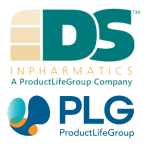An important aspect of a pharmaceutical company is a robust quality management system (QMS) because it shows the company’s commitment to quality. This idea was introduced by the International Conference on Harmonization (ICH) Q10 Pharmaceutical Quality Systems and the USP/NF <1083.1>.
A QMS is defined as a set of interrelated or interacting elements such as policies, procedures, objectives, and processes. Senior management must confirm that the QMS considers all applicable guidelines and regulations and ensure that the required resources are provided to uphold pharmaceutical industry compliance. To guarantee success, communication flows within the organization must be timely.
In episode 24 of CMC.Live, Design Space InPharmatics had a variety of experts in the pharmaceutical industry who specialize in quality management. Susan Fasso states, “A quality management system provides an infrastructure for a company to ensure that the quality of their drug product complies with regulations and assures patient safety as its primary function.”
The development of basic QMS and quality systems from early in the development phases through to commercialization is advantageous to the company. The sooner the systems are developed and implemented, and the mindset and culture are inducted into the company, the more prepared the company will be for regulatory and health interactions in the future. This results in a better chance of successful product approval.
QMS encourages the mindset that ensures a company will have trained and qualified individuals who focus on quality throughout the product lifecycle.
The QMS should include a company’s quality manual, quality policy, mission statement, and the hierarchy of its policies, documentation, procedures, and work instruction. Commitment to the following cGMPs is conveyed in all documentation within the QMS.
Quality is not achieved by one person alone. The quality assurance team at DSI is comprised of various individuals with diverse backgrounds and experience. Everyone must be on the same page or a decrease in quality will occur. A QMS assists in maintaining the company line.
The sooner quality is implemented, the better. Bettina Kaplan states that you do not want to slap a Band-Aid on a process at a later time. Companies should have a QMS outlined, ready with a course of action. It is an all-hands-on-deck situation and should not be left to those on the frontline in factories creating products or the owners of pharmaceutical companies. Every person on the team affects the product in terms of quality, and QMS is effective on all levels.
QMS is one of the most significant elements of a product and should be considered for the process of submission for approval. The integrity of the data is also crucial. As Kaplan states, “If the data going in is garbage, you're going to get garbage out. You have no idea if that data is beneficial.” Regardless of the scale of the facility (virtual compared to brick-and-mortar) or company, QMS must be taken seriously and implemented as soon as possible to ensure a successful product launch.
About DS InPharmatics 
DS InPharmatics (DSI) provides regulatory, technical, and project management consulting services to healthcare product companies that manufacture and/or market pharmaceuticals, biopharmaceuticals, and cellular and gene therapy products.
Since 2007 we have provided our clients with innovative strategies and exceptional quality work products intended to enhance product development, approval, and marketing presence. Whether advocating CMC strategy, directing CMC operations or developing CMC submission content that represent the best interests of emerging biotech, we focus on the critical CMC issues and build programs that enhance development.
In April 2021 we were thrilled to announce that DSI has just become part of ProductLife Group.
French-headquartered ProductLife Group (PLG) is well-known in the Life Sciences market. It has a track record of successfully managing global outsourcing programs and insourcing services for its international client base. The company is on a mission to help transform human health outcomes by optimizing regulatory affairs, safety & vigilance, and quality compliance for life sciences organizations worldwide.
The fit between our two organizations could not be more perfect. We will complement PLG's growing biotech services portfolio. US biotech sponsors recognize DSI as a leader in consulting for go-to-market strategies and RA pre-market consulting. At the same time, PLG has a strong reputation for managing end-to-end outsourcing of regulatory affairs and pharmacovigilance activities worldwide.
Our merger with PLG will harness our combined strengths, offering our clients on both sides of the Atlantic support with their developed drugs approvals and post-approvals compliance, plus advisory services on the best market strategies to deliver a rapid ROI on their development. Together we will offer our clients increased pharmacovigilance capabilities - including a QPPV; pharmacovigilance consulting; and a fully validated safety database - as well as complementary toxicology-related services; RIM/electronic document management services; and support for medical device regulatory requirements.
We see enormous potential in this new chapter for DSI and you, our clients. As a PLG company, we have the opportunity to become part of a global force in life sciences regulatory and compliance solutions and services, and we're incredibly excited to add our momentum to that effort.
Sponsored Content Policy: News-Medical.net publishes articles and related content that may be derived from sources where we have existing commercial relationships, provided such content adds value to the core editorial ethos of News-Medical.Net which is to educate and inform site visitors interested in medical research, science, medical devices and treatments.